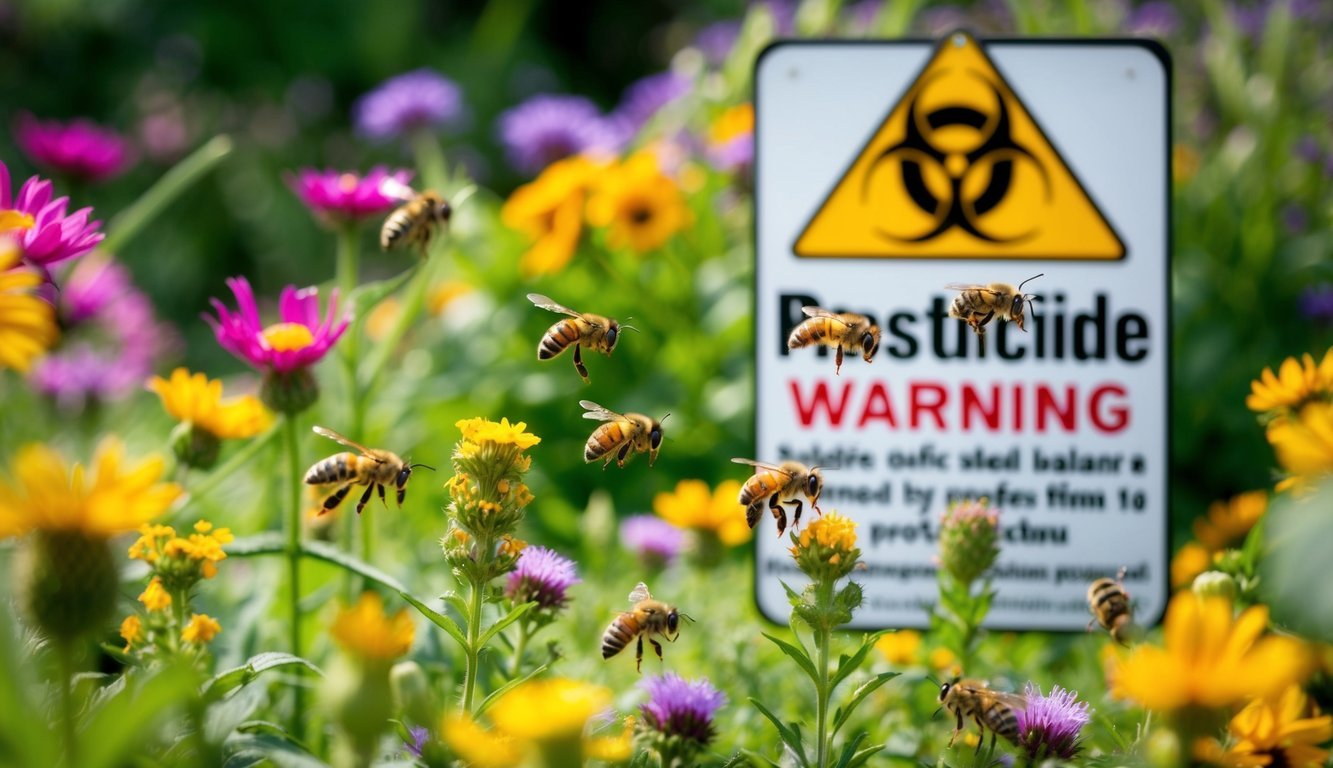
A recent study has unveiled troubling dangers that pesticides pose to ground-nesting bees, crucial players in pollination and agriculture.
With the agricultural sector increasingly dependent on these chemicals, the detrimental effects on these vital pollinators are becoming alarmingly clear.
Research Overview
Led by Sabrina Rondeau, an NSERC Postdoctoral Fellow at the University of Ottawa’s Department of Biology, this research urges a reassessment of existing pesticide safety regulations.
The aim is to enhance protections for these essential species.
The investigation’s findings suggest that current approaches to assessing pesticide risks are heavily skewed toward honeybees, overlooking the unique vulnerabilities of wild bee species that nest in the ground.
The study shows that a staggering 70% of wild bee species critical for crop pollination face serious threats from pesticide residues present in soil—an element that current regulatory policies often ignore.
- Bumble bee queens are often attracted to soils tainted with pesticides, which can heighten their exposure during crucial overwintering periods.
- The research identifies specific pesticides, notably cyantraniliprole, as detrimental to the survival and reproductive success of bumble bee queens, potentially jeopardizing future populations.
- Squash bees exhibit altered behaviors and decreased offspring production when they encounter mixtures of insecticides and fungicides, a sign that their numbers may dwindle.
Impact on Bumble Bee Populations
Dr. Rondeau observed a concerning trend: larger bumble bee queens, typically more resilient through the winter and capable of forming strong colonies, may be more vulnerable to pesticide exposure.
This heightened risk could have serious repercussions for the overall bumble bee population.
In this research, a combination of field studies and lab experiments was employed.
The team began by measuring pesticide contamination in the winter habitats of bumble bee queens on Ontario farms.
These findings informed further explorations into how pesticide exposure impacts hibernating bumble bee queens and the hoary squash bee, a solitary species that nests in the ground.
Call for Policy Reform
Highlighting the importance of this issue, Dr. Rondeau stressed the need for a substantial change in how we evaluate pesticide safety to effectively protect wild pollinators.
Understanding this dynamic is vital for maintaining both the health of our food systems and the rich biodiversity they support.
In conclusion, this research calls for comprehensive reforms to pesticide policies, ensuring better protection for all pollinator species, particularly those that make their homes in agricultural soils.
Source: ScienceDaily

